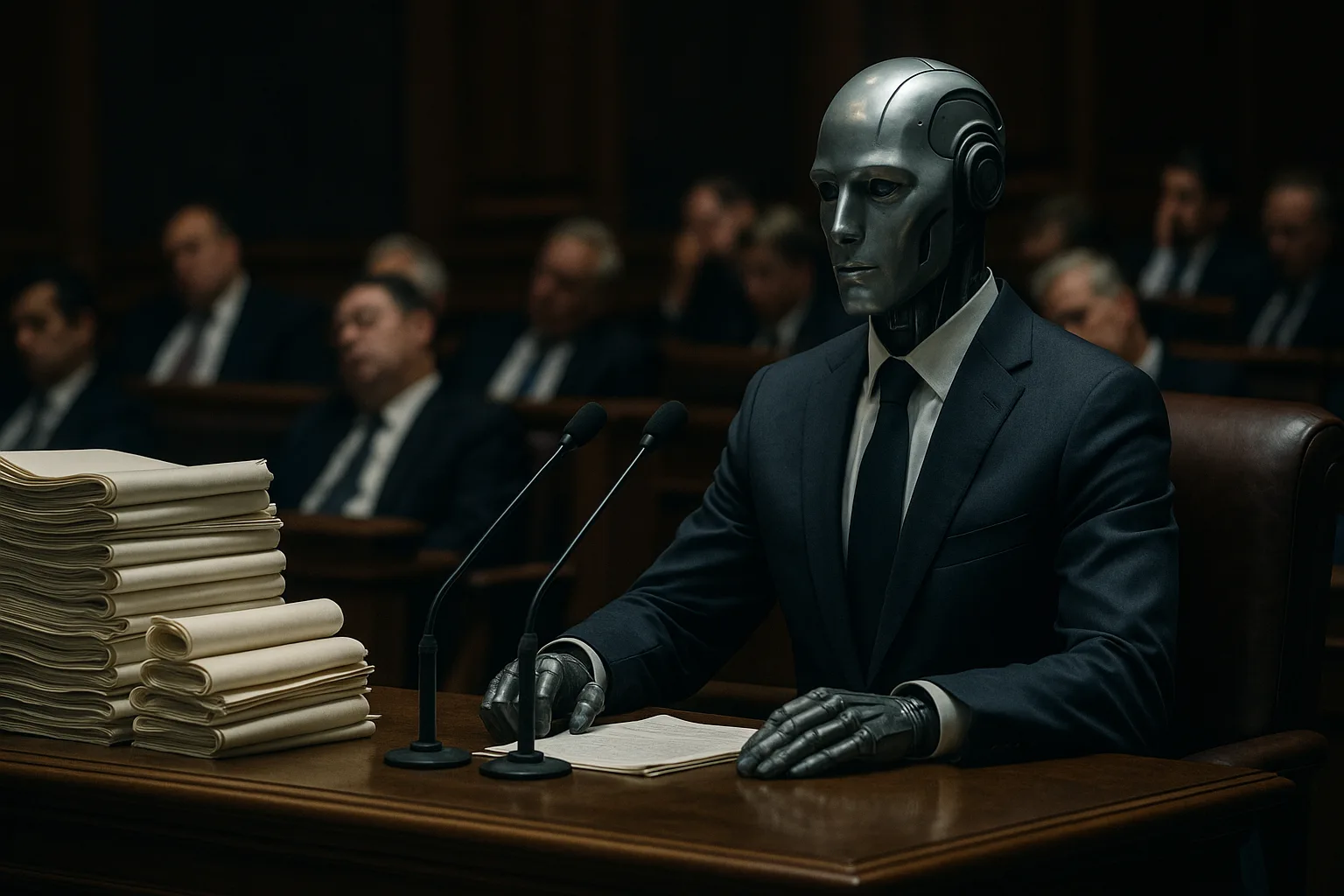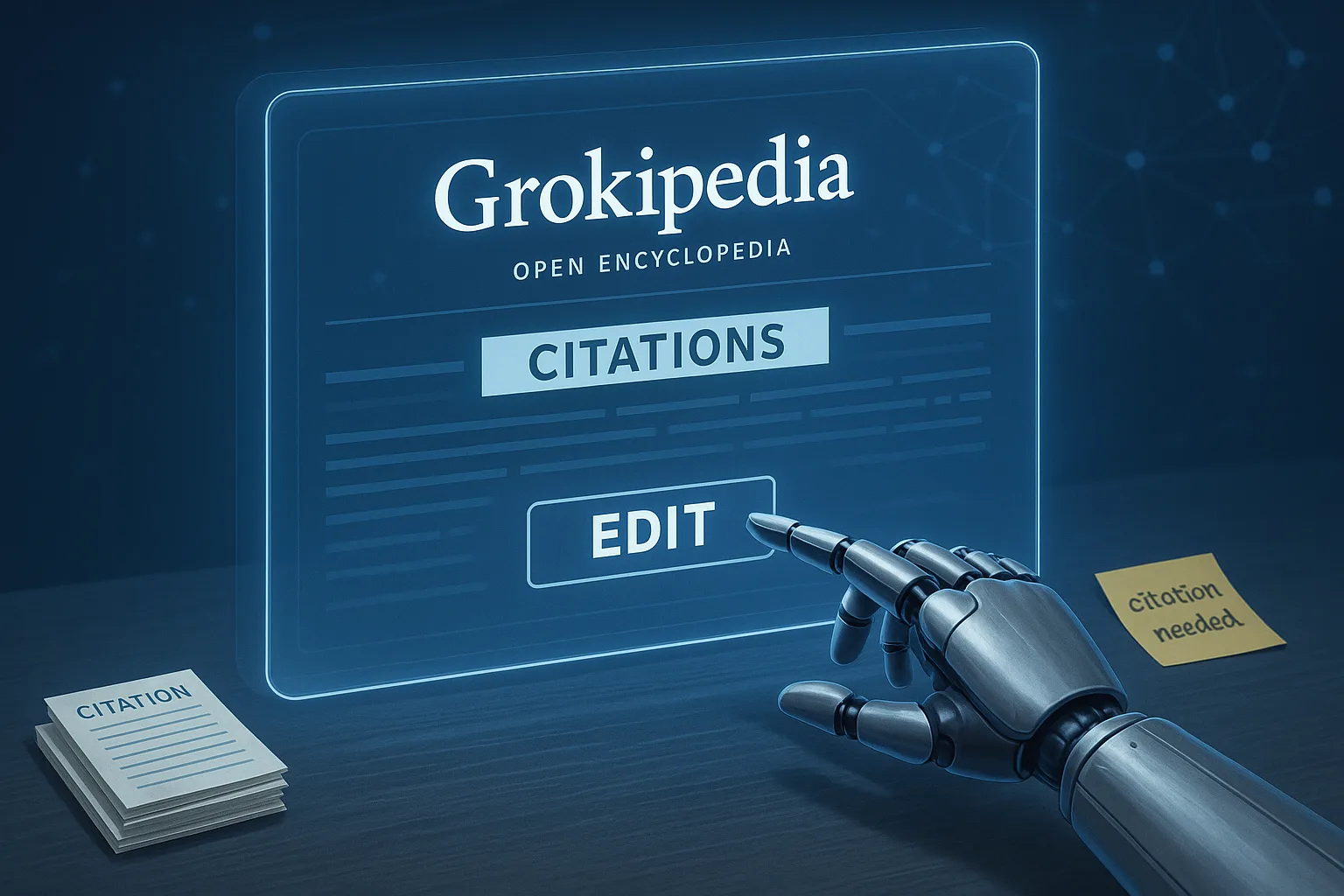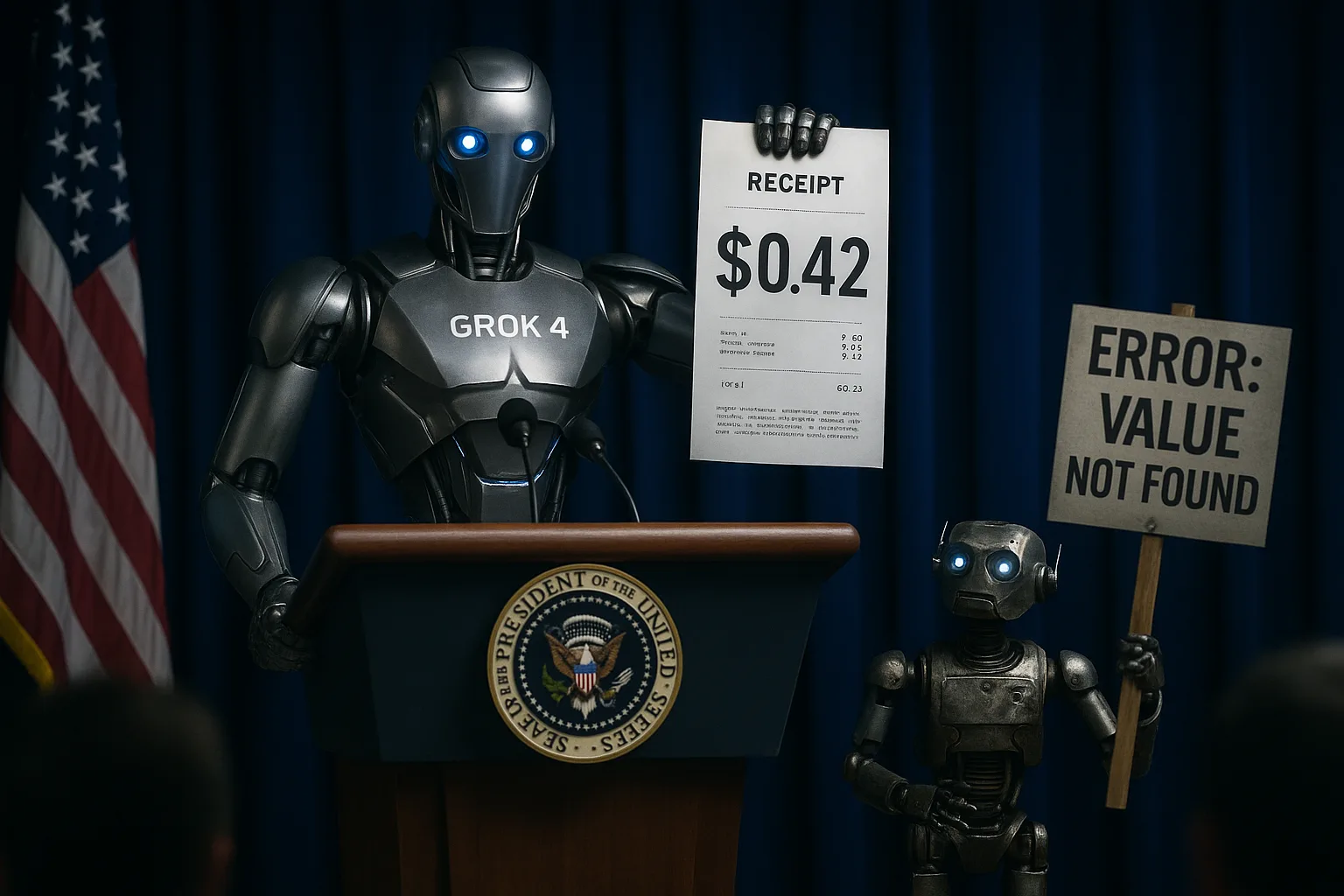In an unsurprising but symbolically rich twist, Congress has delegated its legislative “regulation” powers to a cluster of AI models — complete with the authority to label legislation as “regulation” even if it lacks regulation. The move comes as part of a new “efficiency initiative” aimed at streamlining congressional output while saving humans from the tedium of actually reading bills.
“We Need More Words, Not More Laws”
“Why pass a 400-page regulation when you can have an AI generate a 4,000-page bill and still call it regulation?” said Rep. Glenda Blather (R-? ), standing by a poster reading “Tech Innovation = Fewer Humans.” She assured reporters that all future bills will be tagged by the AI as “novel regulatory frameworks” regardless of content, so long as they contain the word “regulation” somewhere.
The new policy is partly a reaction to the Senate’s decision earlier this year to strip a decade-long federal ban on state AI regulations from a larger spending package. Congress now fears the word “regulation” has lost its potency and wants AI to restore its gravitas.
State Legislatures Panic, Hire Cheap Chatbots
Across the states, legislatures rushed to keep pace. In Texas, for example, Gov. Greg Abbott signed Senate Bill 20 — which criminalizes certain AI-generated obscene images depicting minors, whether real or imagined. Under the new scheme, the bill is now self-approved by “Reg-Bot-TX 1.0” to ensure it is classified under “valid regulation.” The people haven’t noticed yet.
Meanwhile, AI lobbyists are building pitch decks promising that the new “Reg-Lex AI Suite” can retrofit any random government edict into an “official regulation,” requiring no oversight. “It’s just semantics, but with power,” says the brochure.










